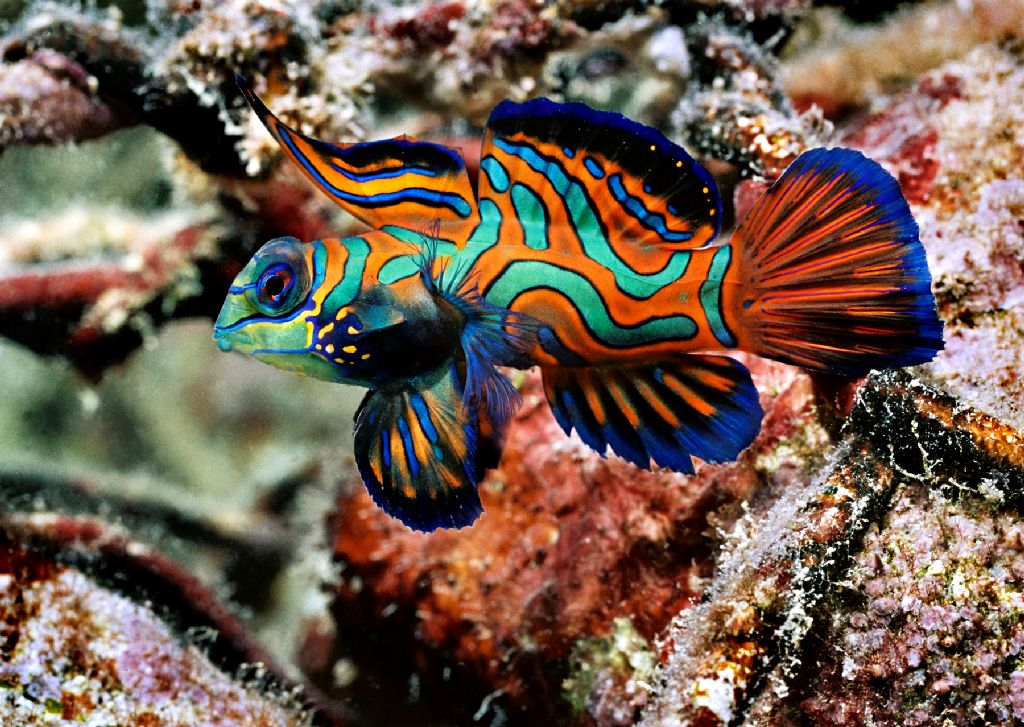
Common Name: Mandarin Fish, Striped Dragonet, Green Mandarin Fish, Green Dragonet
Scientific Name: Synchiropus splendidus
Kingdom: Animalia
Phylum: Chordata
All chordates have the following features at some point in their life (in the case of humans and many other vertebrates, these features may only be present in the embryo):
dorsal nerve cord - a bundle of nerve fibers which runs down the "back". It connects the brain with the lateral muscles and other organs.
notochord - cartilaginous rod running underneath, and supporting, the nerve cord.
Class: Actinopterygii
Order: Perciformes
Family: Callionymidae
Genus: Sunchiropus
Looks/Characteristics: Mandarin Fish are unusual, and distinctive due to their unusual body structure, and varity of coloration. They have a broad head that is mainly blue, with orange, red, and yellow wavy lines. They also have large fan-like pelvic fins which they can use to walk along the sea-floor
Live: Mandarin Fish are usually found in the Western Pacific, including the Phillipines, Indonesia, Hong Kong, Australia, New Guinea, and even Ryukyu Island. To be more specific this organism is found on coral reefs and in fish tanks.
Habitat: The Mandirin like soft sand beds, with ample hiding places to help protect themselves from predators.
Life Span: In the wild the Mandarin fish are able to live an average of 10-15 years, however, while being captive only live about 2-3 years.
Diet: Mandarins are carnivores, they eat small crustaceans such as amphipods, and isopods, small worms and protozoans.
Size: The average length of this species is 3.1 inches (8cm)
Reproductive Cycle: Sexual Reproduction
Breeding/Mating Season: Mandarin fish are pelagic spawners. External fertilization occurs when a male and a female are in close contact and are swimming upward. Mating season is year round, preferably at night, for this organism and can occur on a weekly basis, or even daily basis. However, a female can only spawn once each night, and may go without spawning for several days at a time.
Offspring: Up to 200 offspring can be released.
Parental Involvement: There is no parental involvement after the release of the eggs.
Hunted: They are hunted for aquariums, and sometimes even food.
How they protect themselves: Mandarin fish secrate mucous, which has a very unpleasant smell, a bitter taste and have a layer of aciform cells on their skin which produce and release substances with some toxins. It is believed that the toxins are used as a repellent from predators and competitive fish.
Interesting Facts:
- Often misidentified and referred to as a Blenny, but is actually a member of the Dragonet Family.
- Can use large fan-like pelvic fins to walk on the sea-floor
- Valuable fish for aquarium trade.
- Used as food in many Asian countries